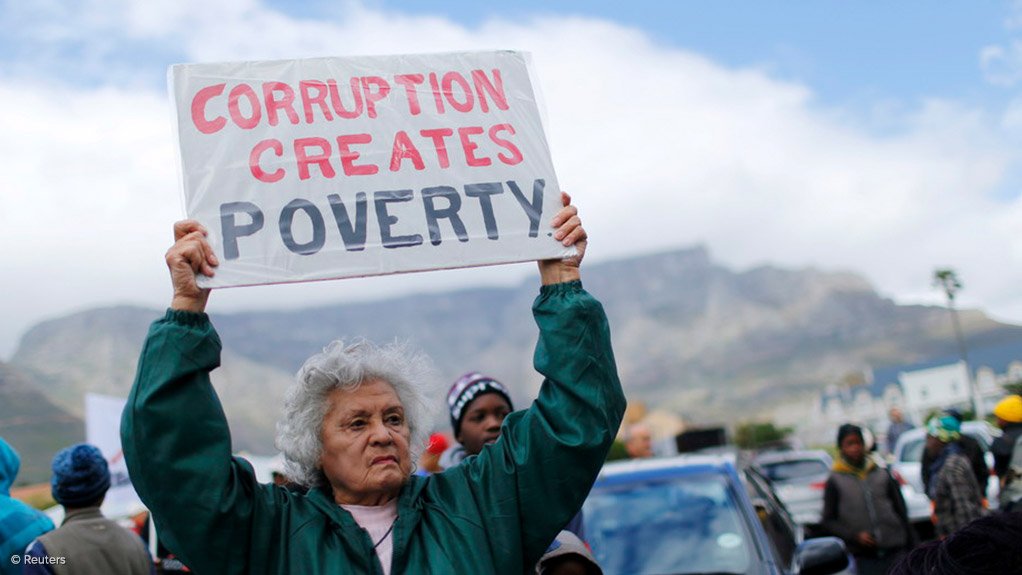Risk body, the Institute of Risk Management South Africa (Irmsa) has warned that it is essential to deal with corruption in South Africa if the country is to begin repairing its “poly-crisis”.
According to the latest global ranking of perceptions of corruption, South Africa has fallen to its lowest level ever recorded, scoring 41 out of 100 on the globally respected Corruption Perceptions Index (CPI).
Irmsa said this finding was consistent with its own analysis in its '2023 Risk Report', and it was concerned that the CPI rating posed an even greater challenge to the risk response strategies identified in the Irmsa report, which aim to create an environment in which to retain and attract foreign investment.
Irmsa chief risk adviser Christopher Palm said corruption was the central issue underlying other risks such as economic collapse, failing infrastructure and poor service delivery.
“Our CPI score is another warning sign that we’re edging closer to becoming a failed State. It puts us in the global spotlight, further deterring foreign investment after our concerning greylisting by the Financial Action Task Force last year,” he pointed out.
He believes accountability and consequence management are key in tackling corruption, however, he pointed out that officials accused of corruption during the Zondo Commission hearings had yet to be held to account while investigating and prosecuting bodies such as the National Prosecuting Authority and the Investigating Directorate need to remain independent to operate effectively.
“It’s clear that we have not put in place the measures required to arrest our poly-crisis fast enough. I have heard prominent chief risk officers in the public and private sectors refer to a perma-crisis, meaning that the risk profile reported and currently materialising at pace may be here to stay,” said Palm.
Risk managers had a role to play in ensuring that corruption was tackled within their respective organisations, he added, and advised that this could be done through the protection of whistleblowers.
Further, he said the 2024 national elections presented South Africans with an opportunity to be “active citizens” by voting in ethical leaders.
“We all have a part to play in tackling corruption whether it’s through active democratic participation or within our organisations. While tackling corruption seems like a monumental task, it’s more important than ever for us to take action by demanding accountability and fostering a culture of transparency,” he ended.
EMAIL THIS ARTICLE SAVE THIS ARTICLE ARTICLE ENQUIRY
To subscribe email subscriptions@creamermedia.co.za or click here
To advertise email advertising@creamermedia.co.za or click here











